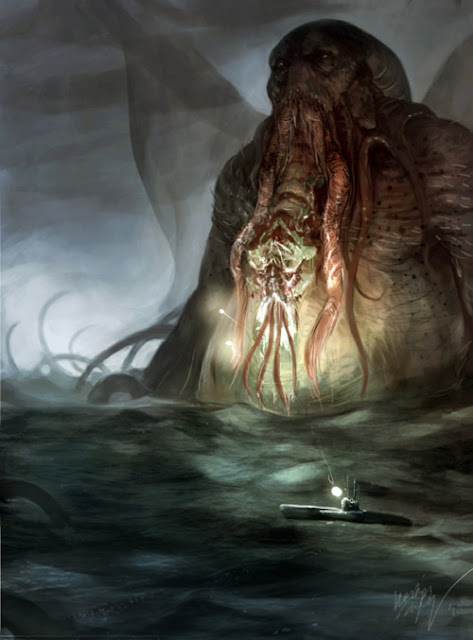0















| Thumbs Up |
| Received: 21 Given: 0 |

I read about this lake a few years ago and wondered what was happening with it. Glad to see scientists are working on this again.A group of Russian scientists plumbing the frozen Antarctic in search of a lake buried in ice for tens of millions of years have failed to respond to increasingly anxious U.S. colleagues -- and as the days creep by, the fate of the team remains unknown.
"No word from the ice for 5 days," Dr. John Priscu -- professor of ecology at Montana State University and head of a similar Antarctic exploration program -- told FoxNews.com via email.
The team from Russia's Arctic and Antarctic Research Institute (AARI) have been drilling for weeks in an effort to reach isolated Lake Vostok, a vast, dark body of water hidden 13,000 ft. below the ice sheet's surface. The lake hasn't been exposed to air in more than 20 million years.
Priscu said there was no way to get in touch with the team -- and the already cold weather is set to plunge, as Antarctica's summer season ends and winter sets in.
"Temps are dropping below -40 Celsius [-40 degrees Fahrenheit] and they have only a week or so left before they have to winterize the station," he said. "I can only imagine what things must be like at Vostok Station this week."
The team's disappearance could not come at a worse time: They are about 40 feet from their goal of reaching the body of water, Priscu explained, a goal that the team was unable to meet as they raced the coming winter exactly one year ago.
When the winter arrives in the next few weeks, the temperature can get twice as cold. Vostok Station boasts the lowest recorded temperature on Earth: -89.4 degrees Celsius (-129 degrees Fahrenheit).
If the team does reach the lake water, they will bring its water up through the hole and let it freeze there over the winter. The following year they will be able to start research on what they find, Priscu explained.
While there are only a few researchers actually working at the lake, scientists around the globe have been waiting with bated breath to see what the Russian's unearth this weekend.
"We are terribly interested in what they find," Alan Rodger, a scientist at the British Antarctic Survey, told FoxNews.com last year. "This is a lake that we don't think has been exposed for 15 million years. Therefore, if there is life there, we're going to have so many questions. How has it evolved over those years, how has it survived, what does it look like? Won't it be exciting to find something completely new on Planet Earth?"
Hey, where's the lake? Hidden beneath nearly 2 miles of ice in Western Antarctica.
The Lake Vostok project has been years in the making, with initial drilling at the massive lake -- 15,690 square kilometers (6,060 sq mi) -- starting in 1998. Initially, they were able to reach 3,600 meters, but had to stop due to concerns of possible contamination of the never-before-touched lake water.
"Ice isn't like rock, it's capable of movement," Dr. Priscu told FoxNews.com. "So in order to keep the hole from squeezing shut, they put a fluid in the drill called kerosene. Kerosene also grows bacteria, and there's about 65 tons of kerosene in that hole. It would be a disaster if that kerosene contaminated this pristine lake."
But the scientists came up with a clever way to make sure this debacle would not occur. They agreed to drill until a sensor warned them of free water. At that point they will take out the right amount of kerosene and adjust the pressure so that none of the liquids fall into the lake, but rather lake water would rise through the hole.
Priscu was concerned for his colleagues, but also admits the stunning scope of the story.
"It could be fodder for a great made-for-TV movie," he said.
http://www.foxnews.com/scitech/2012/...zen-land-lost/















| Thumbs Up |
| Received: 22 Given: 20 |

I fear the worse for them but i hope i'm wrong and that theres a happy ending.














| Thumbs Up |
| Received: 118 Given: 0 |

Careful Russkies. God knows what's down there...














| Thumbs Up |
| Received: 21 Given: 0 |

Russian scientists have reportedly made a long-expected breakthrough in science as they reached a unique lake in the Antarctic. The lake had been isolated from the world for millions of years.
Russian specialists started drilling the ice in the area of Lake Vostok more than 30 years ago. The lake lies at the depth of 3,768 meters. On February 5th, the Russian scientists finished the drilling and reached the surface of the subglacial lake, RIA Novosti news agency said. A source at the Russian Meteorological Agency confirmed that the scientists had reached the surface of the lake. No details were reported.
However, Itar-Tass said with reference to its sources that the scientists would only have to drill several more meters to reach the surface. The agency could not confirm that the surface of Lake Vostok had been reached through the well. The work at the drilling complex continues 24/7, which gives the result of 175 centimeters of drilled ice a day.
The head of the mission, Valery Lukin, has recently returned from the Antarctic. He is going to deliver a report about the achievements of the mission at the Arctic and Antarctic Research Institute, Gazeta.ru reports.
The discovery of Lake Vostok is one of the greatest geographic discoveries of the second half of the 20th century. The lake is 300 kilometers long, up to 80 meters wide and up to 1 kilometer deep. The lake lies underneath nearly four kilometers of ice. Vostok is a unique ecosystem, which is isolated from the Earth's atmosphere and biosphere. Scientists believe that the lake can be inhabited because water has all factors required for life. The lake may shed light on the scenarios of natural changes of the climate during the forthcoming millenniums.
This season, Russia's 57th Antarctic mission started drilling the ice on January 2. It was previously planned that the seasonal works would end once the drilling device reaches the water surface of the lake. The specialists planned to continue the drilling in December 2012 to recover the samples of the fresh-frozen water of the lake.
Deep drilling in the area of Vostok Station in the Antarctic began during the 1970s, when no one knew about the existence of the lake. The station was built for paleoclimatic research. In 1996, a group of Russian and British scientists discovered the lake underneath the depth of the Antarctic ice. The lake is one of the largest fresh water reservoirs on the planet.
Afterwards, it became possible to find out more about the size, the shape of the lake, the thickness of the ice and the underwater relief.
In 1998, the deep drilling process above the lake was suspended as a result of the economic crisis. One had to drill only 130 meters to reach the relic waters of the island. There was also an ecological reason that halted the process. They used kerosene-based anti-freezing agent for the drilling not to let the well freeze under the temperatures of nearly -90 below zero Centigrade. The agent could pollute the waters of the subglacial lake and destroy its microfauna.
Valery Lukin, the chairman of the Russian project, said that the researchers took all necessary measures to prevent the pollution of the lake. The safe technology was developed in St. Petersburg. In 2003, Russia received the approval from the international community. The new drilling technology was particularly tried in Greenland, where climate conditions are similar. The works in the Antarctic were resumed in 2005.
http://english.pravda.ru/science/tec...lake_vostok-0/
There are currently 1 users browsing this thread. (0 members and 1 guests)
Bookmarks